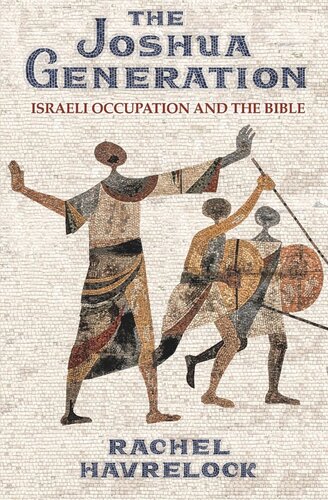

Most ebook files are in PDF format, so you can easily read them using various software such as Foxit Reader or directly on the Google Chrome browser.
Some ebook files are released by publishers in other formats such as .awz, .mobi, .epub, .fb2, etc. You may need to install specific software to read these formats on mobile/PC, such as Calibre.
Please read the tutorial at this link: https://ebookbell.com/faq
We offer FREE conversion to the popular formats you request; however, this may take some time. Therefore, right after payment, please email us, and we will try to provide the service as quickly as possible.
For some exceptional file formats or broken links (if any), please refrain from opening any disputes. Instead, email us first, and we will try to assist within a maximum of 6 hours.
EbookBell Team

4.7
66 reviewsHow a controversial biblical tale of conquest and genocide became a founding story of modern Israel
No biblical text has been more central to the politics of modern Israel than the book of Joshua. Named after a military leader who became the successor to Moses, it depicts the march of the ancient Israelites into Canaan, describing how they subjugated and massacred the indigenous peoples. The Joshua Generation examines the book's centrality to the Israeli occupation today, revealing why nationalist longing and social reality are tragically out of sync in the Promised Land.
Though the book of Joshua was largely ignored and reviled by diaspora Jews, the leaders of modern Israel have invoked it to promote national cohesion. Critics of occupation, meanwhile, have denounced it as a book that celebrates genocide. Rachel Havrelock looks at the composition of Joshua, showing how it reflected the fractious nature of ancient Israelite society and a desire to unify the populace under a strong monarchy. She describes how David Ben-Gurion, Israel's first prime minister, convened a study group at his home in the late 1950s, where generals, politicians, and professors reformulated the story of Israel's founding in the language of Joshua. Havrelock traces how Ben-Gurion used a brutal tale of conquest to unite an immigrant population of Jews of different ethnicities and backgrounds, casting modern Israelis and Palestinians as latter-day Israelites and Canaanites.
Providing an alternative reading of Joshua, The Joshua Generation finds evidence of a decentralized society composed of tribes, clans, and woman-run households, one with relevance to today when diverse peoples share the dwindling resources of a scarred land.